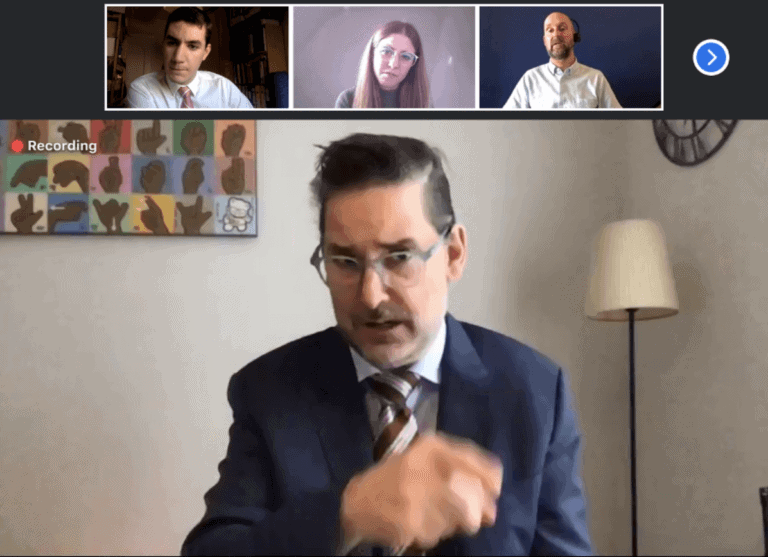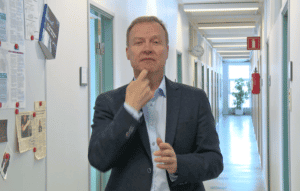On the 12th of November, the Spanish Press Agency EFE interviewed Mark Wheatley, EUD Executive Director, on transparent masks.
The COVID-19 pandemic and the response to it by governments has created situations of infringement of the rights of deaf persons: inaccessible information, lack of access to communication in hospitals, and further isolation, among other issues of concern. The mandatory rules of wearing face-covering masks have posed a major setback in the right to access information and communication for deaf persons, and various public authorities and deaf organisations are cooperating with private companies to produce certified transparent masks that will facilitate access to information and communication.
In the interview, Mark underlined that the COVID-19 pandemic has created unprecedented barriers for deaf persons, such as the obligation to wear face covering masks that limit the communication of many deaf persons. Mark recognised that transparent masks, as long as they are medically safe and certified, may play an important role in facilitating access to communication for deaf persons. However, he also explained that transparent masks are only the first step, and that many other measures must follow, such as allowing sign language interpreters to accompany deaf persons in hospitals, providing access to COVID-19 and mental health hotlines and fighting the isolation that many deaf persons, especially deaf elderly, are facing due to lockdown measures.
Mark also highlighted the importance of including deaf persons and persons with disabilities in COVID-19 recovery plans, so that deaf persons can equally benefit from policy responses to the COVID-19 pandemic. He also emphasised that inclusion of different groups in the recovery plans will ultimately result in more efficient policy responses to the COVID-19 crisis.
As a follow up to the interview, EUD will continue working with different stakeholders to showcase the additional barriers that many deaf persons continue to face in an effort to ensure compliance with the rights of deaf persons, especially in relation to the UN Convention on the Rights of Persons with Disabilities. EUD would like to share the findings and recommendations included in its position paper on the impact of the COVID-19 on the rights of deaf persons.
EUD would like to thank the Spanish Press Agency EFE for organising this interview.
Neseniai priimtas Europos elektroninių ryšių kodeksas ir Europos prieinamumo aktas sustiprina Europos Sąjungos įsipareigojimą užtikrinti, kad visi galėtų vienodomis sąlygomis naudotis numeriu 112.
Tačiau EUD primena, kad dabar atėjo laikas ES valstybėms narėms imtis veiksmų. Europos komunikacijų kodekse ir Europos prieinamumo akte išvardyti teisiniai įsipareigojimai užtikrinti, kad numeris 112 būtų prieinamas visiems, turi būti skubiai ir ambicingai perkelti į nacionalinius įstatymus ir tapti realybe, kad neįgalieji turėtų lygiavertę prieigą prie bendrojo Europos skubios pagalbos telefono numerio 112.
112 dienos proga EUD ragina ES valstybes nares įsipareigoti plataus užmojo ir skubiai perkelti į nacionalinę teisę įpareigojimus užtikrinti, kad numeris 112 būtų prieinamas visiems, nes tai yra gyvybių gelbėjimo klausimas ir jis negali laukti!












